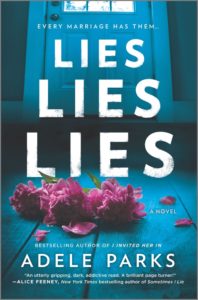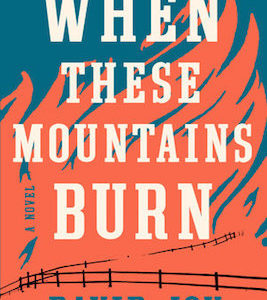Domestic suspense novels do not have to be full of blood and dead bodies (although they can be). I think the most successful ones are those where the reader feels a sense of familiarity and connection with the characters or environment. We believe the story really could happen, and most awfully, it could happen to us. Domestic suspense looks at the horror that goes on in seemingly normal everyday families and so our initial investment in the story is high.
In Lies Lies Lies, I present the reader with Daisy and Simon, a happy couple that have been together for twenty years. They have a lovely home, great friends and although they’ve had their share of struggles (it took years for them to conceive a baby) we meet them when their longed-for little girl is five and everything, finally, seems to be going swimmingly. Except, nothing is ever what it seems in domestic suspense. Daisy and Simon both have secrets and addictions, they are lying to themselves and each other. The veneer they’ve created is tissue thin, readers will get a darkly delicious kick out of watching their world crumble.
Daisy is addicted to presenting the perfect family and for this reason she can’t confront her husband’s harmful and debilitating addiction to alcohol. They both narrate chapters but are either of them reliable? Can memory be reliable or are we all storytellers, constantly editing depending on our emotions, and sometimes other factors too, such as substance intake?
Memory loss and amnesia are two very common short-term side effects of excessive drinking. Binge drinking can cause a person to blackout and while a person may appear awake and alert, the next day, often they have no idea what happened. When drunk, judgment and cognition are completely impaired. When people blackout, it’s incredibly dangerous. It puts them at risk of being involved in violence, an accident, or being the victim of an assault. A horrific reality, but as a writer of domestic noir novels, this science affords tremendous opportunities for character and plot development. Simon is perhaps the most untrustworthy narrator I’ve ever penned; he can’t trust himself so how can a reader trust him? He is damaged and destructive, however I hope readers retain a level of sympathy for him. We all have a relationship with alcohol, even if that relationship is one of abstaining. If you block your ex’s number, you sort of know he/she can still affect you; arguably it’s the same if you avoid alcohol.
Novelists (and readers) have long since been fascinated by characters who have savage or overwhelming relationships with alcohol. Maybe we are ghoulish. It’s undoubtedly compelling for readers to track seemingly ordinary people and then watch as something exceptional happens when they’re placed under extraordinary stress. Hopefully my readers will care about Daisy, Simon and their daughter by the time the family spins into freefall as a result of his alcoholism. A fascination with darkness is part of being human. We all have light and dark in us but we’re not heartless. Books provide a safe environment to explore these different lives without ruining our own or anyone else’s.
Reading domestic noir is like going on a scary ride at the funfair. It’s a way to get an adrenalin hit in a safe environment. You know nothing awful can happen to you while you’re reading. Watching the news is not so containable or reassuring; newspapers are full of scary stories, without any resolutions or guarantees. In real life, crimes go unsolved for decades. In a novel, there usually is some sort of resolution. A novel can give us comfort that darkness will be discovered and removed.
The best domestic suspense novels continually astonish and defy the reader until the final page. How great is it when we think we’re heading in one direction, but the author spins us around and takes us somewhere else? My novel isn’t called Lies, it’s called Lies Lies Lies for a reason. There are multiple twists and reveals. The characters are unreliable, the plot complicated. Simon’s alcoholism handed me a way to be slippery when constructing plot. We want to trust him, but his memory is faulty.
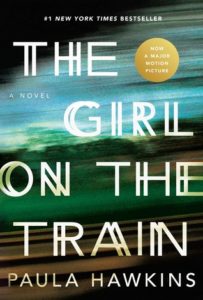
The Girl on the Train by Paula Hawkins
A lot has been written about this brilliant psychological thriller, domestic noir—call it what you will. A complex and increasingly chilling tale delivered by Rachel, who the reader will have a mercurial relationship with. Without giving away spoilers, by turn, we’re drawn to her, disgusted by her, rooting for her, distrustful of her—and all because she is an alcoholic and therefore unreliable. The sad thing is however frustrated or irritated we are by Rachel’s lack of certainty and clarity, brought about by her drinking, she is significantly more so. Rachel commutes to and from the city by train. On most days a signal halts the train next to a line of townhouses, and Rachel has become addicted to watching one couple’s house, in particular. She idealizes them from her alcoholic daze, believing them to be perfect. That is, until she witnesses the woman kiss another man. This is only a tiny part of the story, the catalyst for events that become dark and dire. But it’s fitting that I only mention part of the story because that’s so typical of the narration of this novel. Riddled with memory lapses, omissions and lies, driven by obsessions and fueled by alcohol.

Doctor Sleep by Stephen King
In 1977 King released the now classic horror, The Shining. For the uninitiated (if there are any!) it is about Jack Torrance’s alcoholic descent into madness at the empty Overlook Hotel in Colorado. In 2013 the sequel, Doctor Sleep, hit the bookstores. This story is about Jack’s son, Danny, who is also battling demons—real and imagined. To my mind, this thriller is somehow more empathetic and serious, as it offers a full and thorough human experience as Danny spends time in countless Alcoholic Anonymous meetings. In the bleak AA rooms, his very real battles with his addiction to alcohol are as compelling as his battle with the immortal villains. The business with telepathy, ghosts and premonitions all feel tremendously authentic because Danny is an alcoholic and therefore unreliable as a deliverer of truth.
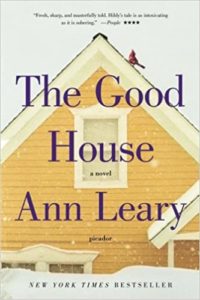
The Good House by Ann Leary
In The Good House, Anne Leary delivers a refreshingly unique character in Hildy Good. She gives the reader a raw, real glimpse into the mind of a middle-aged, outspoken wry New England realtor. Written in the first person, Hindy initially seems like a character you want to be friends with (honestly, we might all be friends with someone exactly like her already). However, as the plot unfolds, we realize she is hiding alcoholism from her family, her town, and—probably most poignantly—herself. Leary throws this sucker punch and it lands hard, exactly as it feels when you do realize a nearest and dearest is battling with addiction. It’s a page turner that is devoured because we frantically want to work out what happened, just as much as the irresistible, colorful addict does. The fact is, completely untrustworthy people can be so charming.
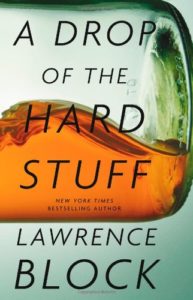
A Drop of the Hard Stuff by Lawrence Block
Matt Scudder and Jack Ellery were at school together, although not really friends. That’s always a great premise for any novel because, love them or loathe them, a person’s school days are uniquely bonding. Twenty years later, newly sober Scudder is a detective but sadly Ellery is the other side of the one-way glass in a police line-up. Their lives have split in very different directions. They do however share a battle with alcohol and that leads to empathy, understanding, perhaps even a strange almost perverse respect because they are both battling, not submitting. In this novel the alcoholism is an unequivocal plot driver. Ellery is on the ninth step of the AA program and is trying to make amends with the people he’s aggrieved in the past. However, he ends up with a bullet in the head, suggesting some secrets in the past are best left alone. Which ones? Why? And can anyone remember? Sharp but vulnerable Scudder must find the killer. The scenes set inside AA meetings seem heartbreakingly authentic.
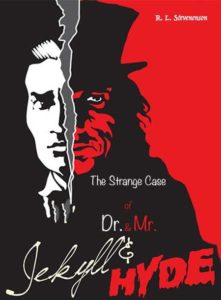
The Strange Case of Dr Jekyll and Mr Hyde by Robert Louis Stevenson
Alcohol and addiction as a plot driver and excuse for memory failure is not a new device. In 1886 Robert Louis Stevenson wrote the classic The Strange Case of Dr Jekyll and Mr Hyde, an archetypal thriller that is still relevant and appealing to readers today. Dr Henry Jekyll is a respectable Victorian gentleman, or at least that’s how people see him and how he wants to be seen. However, he fights what he recognizes as evil urges that rage inside him. As he is a doctor, he tries to devise a potion to suppress these destructive urges that horrify and terrify him in equal parts. Unfortunately, the potion has the opposite effect on Jekyll, unleashing the murderous Edward Hyde. It is a tale that so many of us quote without really noticing that the Jekyll and Hyde story is quintessentially a story about how substances always splits people in two.
***


